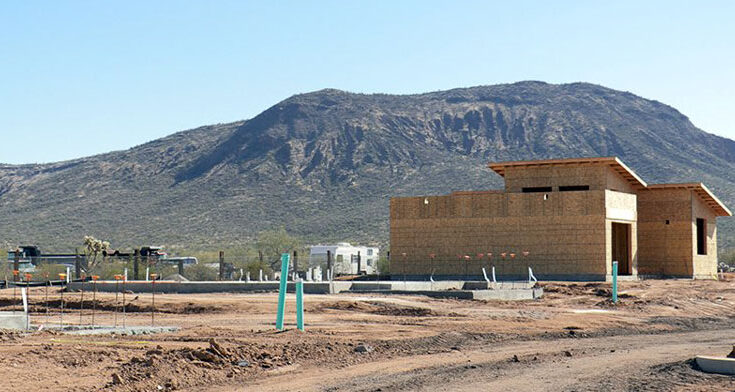File Photo by Madison Thomas/Cronkite News
Arizona’s housing market has been particularly hot over the past two years. While property throughout the US has been in high demand, cities like Tucson and Phoenix have some of the hottest housing markets in the country.
This has stayed true throughout all of the setbacks Americans have faced recently. That in itself might surprise you, considering how high the cost of living has become. It is tough for many to get through the month, let alone to invest in new homes at record prices.
Buying a home is not cheap, even if you get a good interest rate. There are associated costs, like insurance which is non-negotiable. There’s also the regular maintenance that you need to start taking care of as soon as you take ownership of the home.
There are expenses associated with renting as well. Renters insurance is a must. Do you need renters insurance if you live in Arizona? It’s not quite required by law, but it is highly recommended as, without it, you’ll be in huge financial trouble if something happens to your possessions. That being said, renters insurance in Arizona is nowhere near as expensive as homeowners insurance.
If times are so tough economically, why hasn’t the Arizona housing market cooled? Will a recession cause it to come crashing down?
Why Arizona property is still so hot
In 2020, interest rates were at a record low, leading to low mortgage rates. This was one of the factors that drove demand so high and caused skyrocketing prices. But in 2022, it seems unlikely that Arizona property is still hot among homeowners. Even those who are fairly financially stable are struggling to deal with rampant inflation. Buying an expensive home with a high APR is unrealistic.
Rather, much of the demand for housing is coming from investors. Many residents of cities in Arizona are looking for homes to rent, leading to high rental income for landlords. Landlords don’t have to worry about their places remaining empty, either. In Tucson, most rental units stay on the market for less than a month.
In this context, it makes sense that investors are snapping up Arizona housing in spite of rising prices and inflation. They know that they are going to come out in the green no matter how expensive their new properties are. The cost of rent does not always go up consistently, but it very rarely goes down, even in tough financial environments.
What impact will a recession have?
Depending on who you ask, we may be on the verge of a recession, in a recession, or about to avoid a recession. There has been talk of a recession for the past couple of months, and while it is far from guaranteed, it is worthwhile talking about the potential effects.
Recessions hit everyone hard. Unlike the other economic crises we are facing, investors and corporations are not immune to recessions. In fact, they may be the hardest hit. During a recession, investors, therefore, become cautious, pulling out of risky investments and putting their money in safe-haven investments.
This could lead to a housing market crash. It is not that housing is a risky investment. On the contrary, it has been fairly reliable for years now. However, a sudden plateau in the market after two years of rapidly increasing rates could lead investors to panic. If investors stop snapping up housing, a plateau at the very least is inevitable.
It is possible that people will act rationally, but fear can spread quickly. Fear of a crash could lead to investors choosing to sell their properties, ultimately creating a self-fulfilling prophecy as more and more people react to falling prices.
But there is another scenario that is just as likely.
Landlord perks
Investors are buying up property in order to rent it out and not in the hopes that its value will increase. With a housing crisis due to a lack of units to rent, landlords will continue making money even in a recession. There is always the possibility of another eviction moratorium, along with other measures that helped renters during the pandemic, but investors understand that that would be a temporary measure. As long as they don’t rely on that income to pay the bills, they can wait it out.
Property owners may have to refrain from upping the rent for some time, but rent is already high. Investors are already making a lot of money from tenants. They can hold off on rent increases for the next couple of months or even years.
A recession might impact Arizona’s hot housing market. However, it is more likely that housing will continue to be a lucrative investment. Property values may not rise at the same rate, but they are more likely to plateau than to come crashing down.









